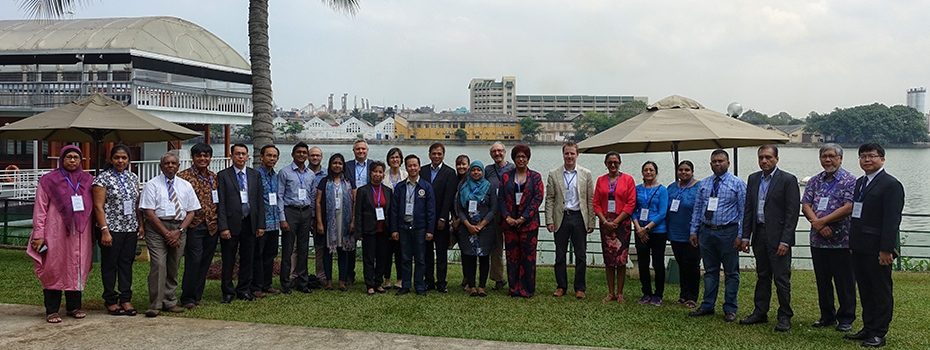
University of Yangon participated in the Kick Off meeting of the CABARET project
University of Yangon participated in the Kick Off meeting of the CABARET project, which took place in Colombo (Sri Lanka) on 27-30 March 2017. CABARET (CApacity Building in Asia for Resilience EducaTion) is funded by the European Union, under the Erasmus + programme, to foster regional cooperation for more effective multi-hazard early warning and increased disaster resilience among coastal communities.The project is inspired by the UN Sendai Framework for Disaster Risk Reduction, agreed by UN member states in 2015. It includes a strong call for higher education to support the understanding of disaster risk and promote risk-informed decisions and risk sensitive planning from the local to the global levels. It also calls for the coordination of existing networks and scientific research institutions at all levels and all regions. The goal is to strengthen the evidence-base in support of the implementation of the new framework.
University of Yangon joined a group of experts from a consortium of 14 European and Asian higher education institutions from Bulgaria, Indonesia, Latvia, the Maldives, Malta, Myanmar, the Philippines, Sri Lanka, and the United Kingdom that hosts the University of Huddersfield’s Global Disaster Resilience Centre, leading partner of CABARET project.The Intergovernmental Oceanographic Commission of UNESCO (IOC-UNESCO), the Asian Disaster Preparedness Center and the Federation of Sri Lankan Local Government Authorities are Associate Partners of the project, and will help to promote the benefits across Asia and beyond.
During the Kick Off meeting, the partners provided the basis for a three year workplan and defined the first phase of CABARET that will involve a detailed analysis of existing capacity for multi-hazard early warning at the national level in Indonesia, the Maldives, Myanmar, the Philippines and Sri Lanka, as well as a wider regional analysis across Asia. This will provide the basis for future capacity development activities aimed at fostering regional cooperation and integration.
This project contributes to the internationalization of University of Yangon and fosters future collaborations with Europe and Asian partners in the field of disaster risk reduction.
The European Commission support for the production of this publication does not constitute an endorsement of the contents which reflects the views only of the authors, and the Commission cannot be held responsible for any use which may be made of the information contained therein.

